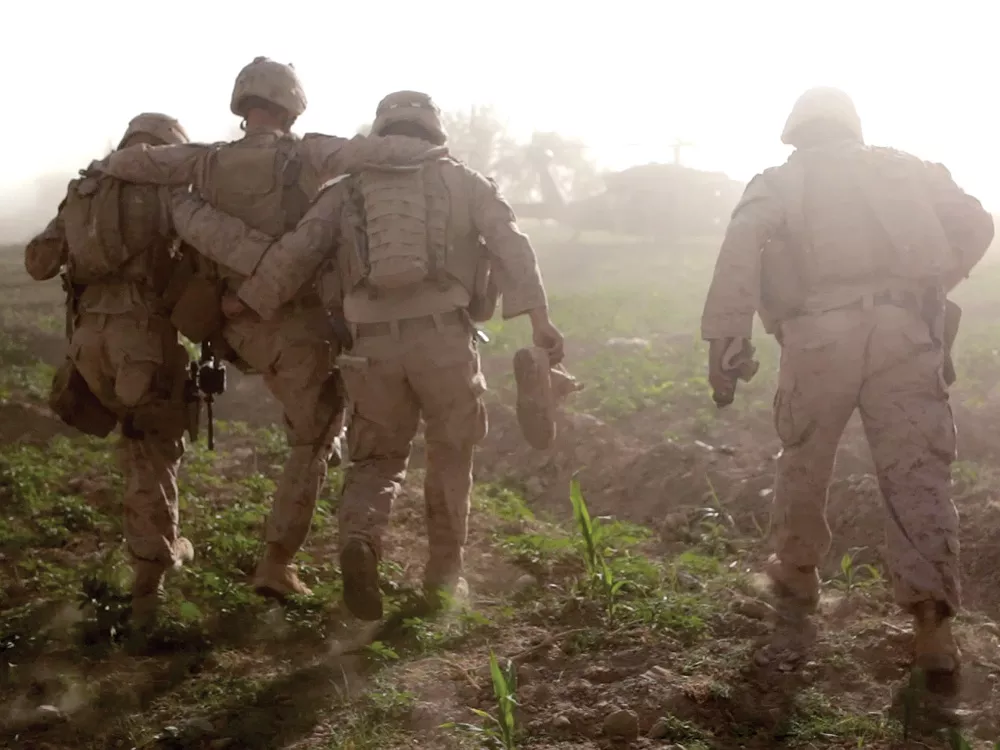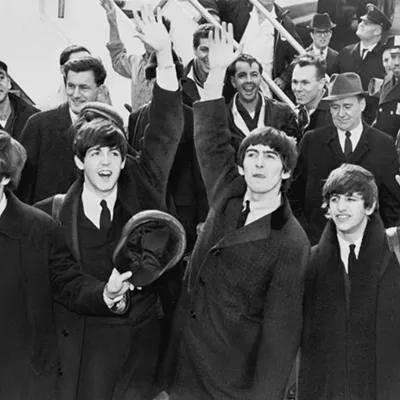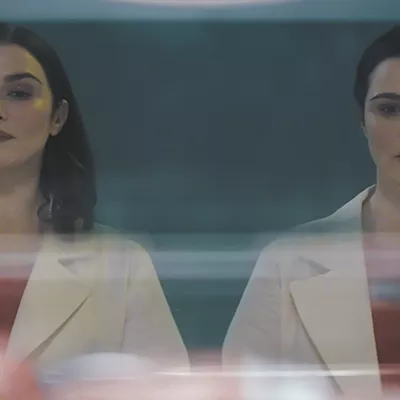People question the value of the wars we have just gotten done fighting. Marine Sergeant Nathan Harris does not. The veteran of three tours in Afghanistan believes in the mission, he believes in his men, he believes that the sacrifices he made were for the greater good.
He tells us this while sitting in a motorized shopping cart at Wal-Mart, moments after showing an elderly greeter there the lightning-shaped scar that spirals from tailbone to kneecap down the right side of his body.
Over there and back then, Harris was a hawkeyed and decisive leader of men. Here and now, he spends his days in an oxycodone fog — forlorn one minute, agitated the next — and can’t get dressed without help from his wife, Ashley.
Lauded war correspondent and first-time documentarian Danfung Dennis embedded with Harris’ company in 2009, during what has come to be known as the Afghan counterinsurgency. After Harris’ catastrophic injury, Dennis followed him home and filmed that, too.
The battlefield is the more dangerous place, but home proves the more crushing.
Harris is 26. He has been in the Marine Corps since he was 18. We know he feels more at home in Afghanistan, where he feels he has purpose, rather than in America, where he has none. Harris tells us that, when his drill sergeant asked what he wanted out of the Marines, and he replied, “to kill people,” the sergeant answered, “That’s the best answer I’ve ever heard.”
His doctor on the base tells him in no uncertain terms that it will take him a year to get “you back killing people.” Killing people is all Harris has ever wanted to do. This is fortunate, because killing people is all that America seems to want from him.
Dennis edited the film so that Harris’s life in Afghanistan and back home run in parallel, getting closer to and further from the injury that would cripple him. The two bleed into each other in ways that often feel poetic — the screams of battle into his moans of pain during physical therapy; his leg dragging limply across pavement outside a funeral into his legs in the days before the injury, propelling him down a rocky foot path.
The footage of Afghanistan tells much the same story that 2010’s Restrepo did: It is confusing and deadly work to root out insurgents who can easily blend in with a population of innocents, who, after years of fear
and bloodshed, view the Americans as the same sort of threat that Al Qaeda is. The footage from North Carolina hasn’t been — and perhaps couldn’t possibly be — duplicated anywhere.
War begins the same, Dennis’ film suggests, but has as many endings as there are combatants.
All told, Restrepo captured battlefield chaos better than this documentary does. For depictions of carnage and its consequences, though, Hell is far more harrowing. Without a mission, Harris goes stir-crazy. He is increasingly bleak. He bugs his wife incessantly. He has panic attacks when too many people speak at once. He ultimately takes to sleeping with his service pistol.
Through it all, we never quite expect to see the moments after Harris got hit. It doesn’t seem possible. There have been, on the whole, so few truly grotesque images from this war: How could this be any different?
But then, with no fanfare, there it is. Harris lays face-down in a tilled field, the boot of his right leg touching the helmet that is still strapped to his head.
The meat of his thigh is split and shredded. It hangs from his body, connected only by a flap of flesh that used to be his buttock. In that moment Harris squeals in the frequencies of small children and with the panicked timbre of a stuck pig. When the men he commands reach him with a stretcher, they pick him up in pieces.
This is what war is. There may be honor in it, but it is hard to see the glory.




















